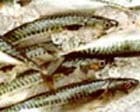Fraunhofer hails breakthrough analysis for pesticide residue in fish

Dr Christian Schlechtriem, of the German research body’s Molecular Biology and Applied Ecology IME division, told FoodProductionDaily.com the technology had been developed because of concerns from players throughout the supply chain over the accumulation of pesticide chemicals in farmed animals – which now account for half of all fish eaten.
He explained that the problem is that these fish are increasingly being fed vegetable matter that can lead to a build-up of pesticides in their tissues.
Aquaculture growth
Aquaculture, with annual growth rates of 9%, is the fastest developing branch of the global food industry. Soaring demand has put supply strains on fish feed because stocks of ingredients such as fishmeal and fish oil are dwindling, said the scientist.
These ingredients are set to be replaced by crops such as soy and maize – which contain pesticides and thus increases the importance of being able to test fish bred in captivity for residues. While such tests are available for livestock such as pigs, no equivalent analysis for fish had been developed until now.
Dr Schlectriem said the institute had developed a system to test whether chemical substances accumulate in fish that are fed contaminated feed after Germany’s Federal Office of Consumer Protection and Food Safety said urgent action was required.
The method will be employed by pesticide companies in the wake of new European Union Rules due to come in this autumn.
These will oblige every producer and importer who intends to bring a new pesticide onto the European market not only to register it but also to provide information proving it cannot accumulate in the edible parts of fish.
“The fish test developed at the IME will supply the information required,” he added. “While the obligation falls onto companies that produce chemical pesticides, the benefits will be felt throughout the supply chain by processors, retailers and ultimately consumers because it will result in safer food."




